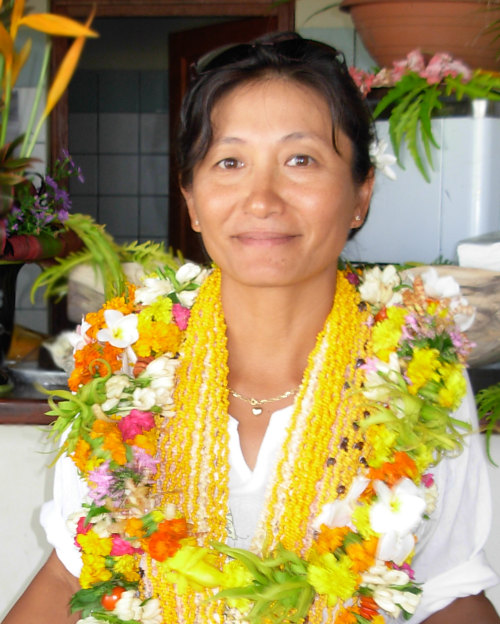
Mireille Chinain, Scientist, French Polynesia
French Polynesian scientist Mireille Chinain has been spearheading regional research efforts on Ciguatera poisoning, the foodborne disease related to the consumption of subtropical and tropical marine finfish which have accumulated naturally occurring toxins through their diet.
Ciguatera poses not only a public health problem but has also a significant impact on the economies of affected countries, especially in Pacific Island Countries and Territories, where populations rely heavily on coastal resources for subsistence. In the South Pacific alone, it is estimated that more than 500,000 persons might have contracted ciguatera in the last 35 years.
French Polynesia is among the nations with the highest number of ciguatera cases in the world. It is also the only nation among PICTs with a research unit ( devoted to ciguatera research since the late 1960s.
Ms Chinain has headed the Laboratory of Toxic Micro-algae at the Louis Malardé Institute in Tahiti since 2000, which is renowned for several of its achievements in the field. Prior to that she was a Tenure Scientist in the institute’s Medical Oceanography Unit for ten years.
Her laboratory is also among the very few in the world capable of maintaining large-scale cultures of this marine micro-algae, which are used for the mass-production and purification of ciguatoxins. Given the notorious lack of commercially available standards of these compounds, these cultures thus represent a significant source of reference material useful for the implementation of seafood safety programs worldwide.
Over the last decade, her laboratory has also specialized in algal and toxin-based field monitoring programs throughout French Polynesian lagoons and the Pacific to provide local populations with a risk map of affected lagoons. Having been confronted on several occasions to the distress of islanders particularly in very remote places where ciguatera is often seen as inevitable, she advocates the implementation of more efficient prevention programs to help reduce the impact of ciguatera.
Hence, part of the time spent by her lab on the field is also devoted to hold information, communication and awareness sessions for public health staff, communities and schools. This strategy proved effective as borne out by the significant fall in the annual incidence rates observed among targeted populations over the ensuing years, a result partly attributable to avoidance strategies among the populations towards high-risk fish species and fishing locations.
To provide these communities with definite everyday assets to ciguatera risk management, her research also focuses on the scientific validation of certain widespread traditional ciguatera-control practices in island communities, such as the resort to various home-made tests to detect fish unfit for human consumption, or traditional remedies to treat ciguatera.
Ms Chinan serves as a co-leader for the implementation of an international strategy plan for ciguatera for the Intergovernmental Panel on harmful algal blooms.
